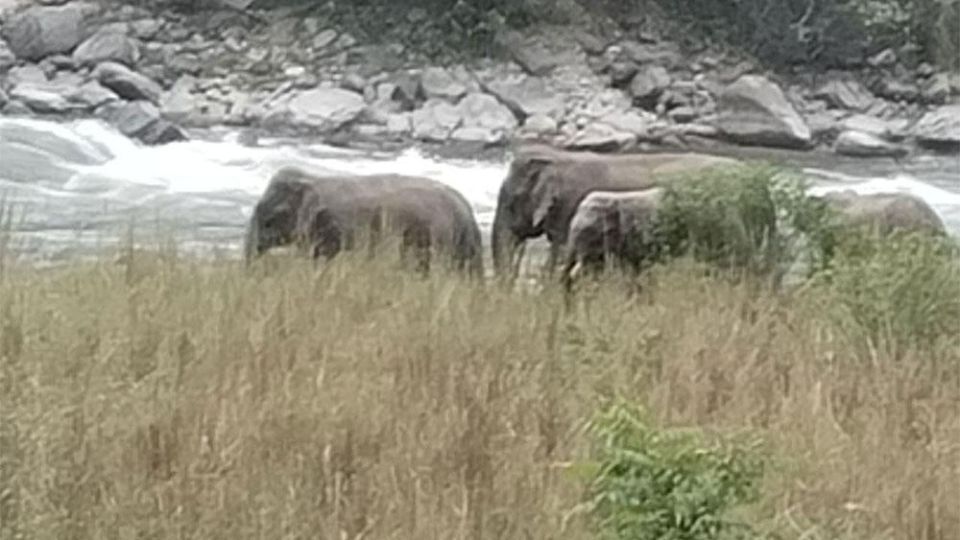May 7, 2025
ZHEMGANG – A herd of 13 wild elephants has been roaming Trong Gewog in Zhemgang for more than three weeks, causing anxiety among residents and damaging property and crops.
The elephants first arrived from Jigmecholing in Sarpang to Bakaling in Trong Gewog on April 12, returning briefly before reappearing in Takapai on April 17. Since then, the herd has lingered near the village, located about a 15-minute walk from Tingtibi town toward Berti.
Takapai has 16 households, now living in uncertainty.
During their first visit, forest officials counted 11 elephants. They believe the herd returned to retrieve two stragglers, suggesting a strong attachment to the area, which may have once been part of their original habitat.
Officials from the Jigme Singye Wangchuck National Park said the animals followed an old ancient trail along the Chablaychhu in Jigmecholing, leading through the Royal Manas Park.
While no injuries or large-scale destruction have been reported, the herd has caused damage to several structures. An abandoned house, three temporary labour camps, an empty poultry farm, fruit trees—including mango and banana—in Takapai, and a cardamom plantation in Tama have been affected.
At Tama School, the window frames of the kitchen and the principal’s quarter were also partially damaged.
In response, the Jigme Singye Wangchuck National Park, in partnership with the Zhemgang Forest Division and local authorities, has formed community response teams. The teams patrol vulnerable settlements at night when the elephants tend to appear.
“On May 4, the herd moved about six kilometres from Berti toward Jigmecholing, but returned around noon the same day,” said a park official. “They are now in the Pirchen forest along the Mangdechhu. We have alerted residents along the river to remain vigilant, and we are assisting them in monitoring the movements.”
Officials suspect the elephants are searching for water, as they have repeatedly broken into storage structures containing salt and water.
“They go where there is water,” the official explained. “We follow the herd when they approach settlements, to keep the people and the animals safe.”
Trong Mangmi Dorji Wangchuk said that while no serious losses have occurred, the community is shaken.
“This is the first time elephants have come this far. They usually appear at night, which increases the danger. Some families have begun sleeping together in neighbours’ homes for safety,” he said.
Forestry officials and police have advised residents to light fires to deter the animals. A community response team is stationed in Takapai, with two more along the Gelephu–Tingtibi highway, where the elephants have been sighted between 1 and 2 am.
The increasing presence of wild elephants in human settlements is intensifying tensions between wildlife and rural communities.
While efforts to protect lives and property are in place, long-term strategies may be needed to manage these encounters as both human and elephant populations compete for space and resources.


